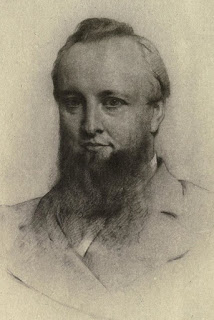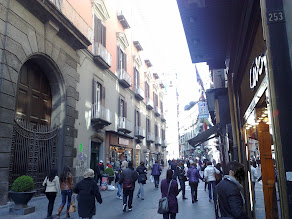John Singer Sargent - painter
Celebrated portraitist had lifelong love for Italy
The painter John Singer Sargent, who was hailed as the leading portraitist of his era but was also a brilliant painter of landscapes, was born on this day in 1856 in Florence. Although he became an American citizen at the first opportunity, both his parents being American, he spent his early years in Italy and would regularly return to the country throughout his life. At his commercial peak during the Edwardian age, his studio in London attracted wealthy clients not only from England but from the rest of Europe and even from the other side of the Atlantic, asking him to grant them immortality on canvas. His full length portraits, which epitomised the elegance and opulence of high society at the end of the 19th century, would cost the subject up to $5,000 - the equivalent of around $140,000 (€122,000; £109,000) today. Sargent was born in Italy on account of a cholera pandemic, the second to hit Europe that century, which caused a high number of fatalities in London in particular. His parents, who were regular visitors to Italy, were in Florence and decided it would be prudent to stay. Although his parents had a home in Paris, Italy, with its wealth of classical attractions, was a favourite destination. Read more…
__________________________________________________________
Revolution in Sicily
January revolt meant the beginning of the end for the Bourbons
The Sicilian uprising on this day in 1848 was to be the first of several revolutions in Italy and Europe that year. The revolt against the Bourbon government of Ferdinand II in Sicily started in Palermo and led to Sicily becoming an independent state for 16 months. It was the third revolution to take place on the island against Bourbon rule and signalled the end for the Kingdom of the Two Sicilies. Naples and Sicily had been formally reunited to become the Kingdom of the Two Sicilies in 1815. Back in medieval times they had both been part of a single Kingdom of Sicily. The 1848 revolt was organised in Palermo and deliberately timed to coincide with King Ferdinand’s birthday. News of the revolt spread and peasants from the countryside arrived to join the fray and express their frustration about the hardships they were enduring. Sicilian nobles revived the liberal constitution based on the Westminster system of parliamentary government, which had been drawn up for the island in 1812. The Bourbon army took back full control of Sicily by force in May 1849 but the revolt proved to be only a curtain raiser for the events to come in 1860. Read more…
____________________________________________________________
Charles Emmanuel I – Duke of Savoy
Rash ruler who led catastrophic attack on Geneva
Charles Emmanuel I, who developed a reputation for being hot-headed, was born on this day in 1562 in the Castle of Rivoli in Piedmont. Renowned for his rashness and military aggression in trying to acquire territory, Charles Emmanuel has gone down in history for launching a disastrous attack on Geneva in Switzerland. In 1602 he led his troops to the city during the night and surrounded the walls. At two o’clock in the morning the Savoy soldiers were ordered to dismount and climb the city walls in full armour as a shock tactic. However the alarm was raised by a night watchman and Geneva’s army was ready to meet the invaders. Many of the Savoy soldiers were killed and others were captured and later executed. The heavy helmets worn by the Savoy troops featured visors with the design of a human face on them. They were afterwards called Savoyard helmets and the Swiss army kept some of them as trophies. Geneva’s successful defence of the city walls is still celebrated during the annual festival of L’Escalade, in which confectionery shops sell a cauldron known as a marmite made from chocolate. Read more…
___________________________________________________________
Ferdinand I of the Two Sicilies
Despotic ruler presided over chaos in southern Italy
The Bourbon prince who would become the first monarch of a revived Kingdom of the Two Sicilies was born in Naples on this day in 1751. Ferdinando, third son of King Carlos (Charles) III of Spain, was handed the separate thrones of Naples and Sicily when he was only eight years old after his father’s accession to the Spanish throne required him to abdicate his titles in Spanish-ruled southern Italy. In a 65-year reign, he would preside over one of the most turbulent periods in the history of a region that was never far from upheaval, which would see Spanish rule repeatedly challenged by France before eventually being handed to Austria. Too young, obviously, to take charge in his own right when his reign began officially in 1759, he continued to enjoy his privileged upbringing, alternating between the palaces his father had built at Caserta, Portici and Capodimonte. Government was placed in the hands of Bernardo Tanucci, a Tuscan statesman from Stia, near Arezzo, in whom King Charles had complete trust. Tanucci fully embraced the enlightened ideas that were gaining popularity with the educated classes across Europe. Read more…


















